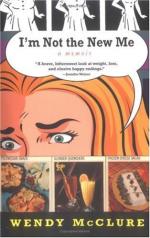“I said to him: ’You seem to be so much pained at contracting so small a debt, I think I can suggest a plan by which you can avoid the debt, and at the same time attain your end. I have a large room with a double bed upstairs, which you are very welcome to share with me.’
“‘Where is your room?’ said he.
“‘Upstairs,’ said I, pointing to a pair of winding stairs which led from the store to my room.
“He took his saddle-bags on his arm, went upstairs, set them on the floor, and came down with the most changed expression of countenance. Beaming with pleasure, he exclaimed:
“‘Well, Speed, I am moved.’”
Another friend, William Butler, with whom Lincoln had become intimate at Vandalia, took him to board; life at Springfield thus began under as favorable auspices as he could hope for.
After Chicago, Springfield was at that day the most promising city in Illinois. It had some fifteen hundred inhabitants, and the removal of the capital was certain to bring many more. Already, in fact, the town felt the effect. Houses and blocks were started; lawyers, politicians, tradesmen, laborers, were pouring in. Hitherto most of the dwellings had been of log or frame; now, however, there was an increase in brick buildings.
The effect was apparent too, in society. “We used to eat all together,” said an old man who in the early thirties came to Springfield as a hostler; “but about this time some one came along and told the people they oughtn’t to do so, and then the hired folks ate in the kitchen.” This differentiation was apparent to Lincoln and a little discouraging. He was thinking vaguely, at the time of this removal to Springfield, that perhaps he best marry a Miss Mary Owens, with whom he had become intimately acquainted in 1836 in New Salem; but Springfield society, and the impossibility of his supporting a wife in it, discouraged him.
“I am often thinking
of what we said about your coming to live
at Springfield,” he
wrote her in May.
“I am afraid you would not be satisfied. There is a great deal of flourishing about in carriages here, which it would be your doom to see without sharing it. You would have to be poor, without the means of hiding your poverty. Do you believe you could bear that patiently? Whatever woman may cast her lot with mine, should any ever do so, it is my intention to do all in my power to make her happy and contented; and there is nothing I can imagine that would make me more unhappy than to fail in the effort. I know I should be much happier with you than the way I am, provided I saw no signs of discontent in you. What you have said to me may have been in the way of jest, or I may have misunderstood it. If so, then let it be forgotten; if otherwise, I much wish you would think seriously before you decide. What I have said I will most positively abide by, provided you wish it. My opinion is that you




